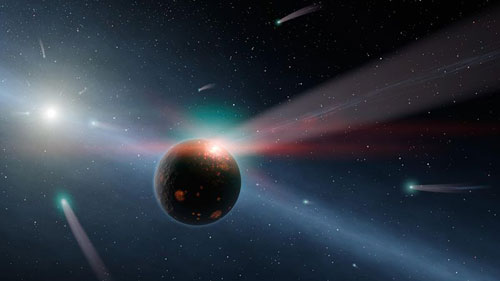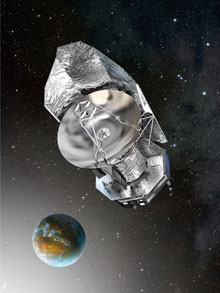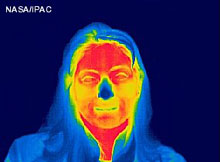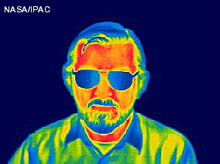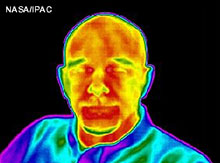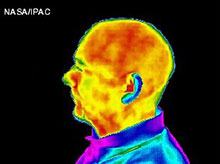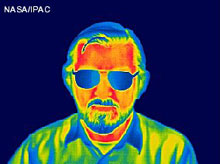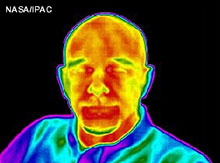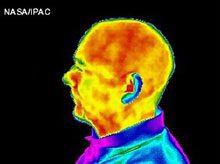Thirsty? Have a comet!
Is Earth part comet?
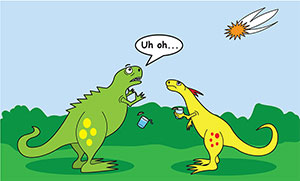
A big comet or asteroid crashed into Earth about 65 million years ago. Scientists think this impact may be why the dinosaurs all died. But much earlier in Earth's history, times were worse. Earth had one bad day after another getting hammered by comets, asteroids, and even bigger chunks of rock. Could these space invaders have brought more than death to dinosaurs?
Could they have even brought something good?
There are many really big questions about Earth's history. One of them is . . .
Where did the ocean come from?
Earth first formed about 4.5 billion years ago. At first, it was too hot to have an ocean. Any water would have boiled right off. After Earth cooled down, the water would stop boiling off into space. Any water would actually stick around.
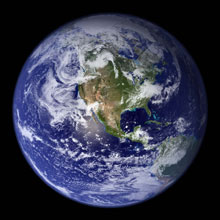
The rocky material that formed Earth in the first place contained some water. But that probably doesn't account for all the water.
Comets are mostly water ice. It could be that comets made regular water deliveries to Earth.
It would take a lot of comets to fill the ocean! But comets could well have made a big contribution. Asteroids contain some water too, so they may have contributed.
How can we find out?
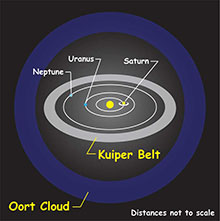
There are still lots of comets in the solar system. The Kuiper Belt is a big region of icy objects, including comets, out beyond the orbit of Neptune. Another region with even more comets is the Oort Cloud. This region is way, way out there. It is about 30 - 50 times farther away than the Kuiper Belt. Comets from either region sometimes go "off course." When they do, they sometimes end up in the inner solar system near Earth.
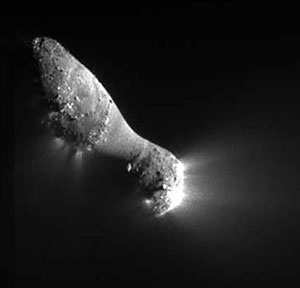
Comet Hartley 2 looks a little like a peanut. It's about 1.25 miles (2 km) long. It probably contains more than enough water to quench your thirst after eating a ton of peanuts!
A telescope called the Herschel Space Observatory recently made an interesting discovery about a comet. Herschel studied Comet Harley 2 in infrared light. Infrared is a kind of light we cannot see, but we may feel as heat.
Herschel can point toward a comet and analyze the water molecules in the fuzzy cloud of mist—or coma. This cloud is from the comet's ice boiling off its surface as it gets heated by the Sun.
But not all water is alike. There are two different types, or "isotopes" of water. One is called "heavy water" and the other is called "light water." Our ocean has a certain proportion of heavy water to light water.
Herschel found that Hartley 2 has half as much heavy water as other comets studied so far. And the proportion of heavy water to light water in this comet matches Earth's ocean! Hartley 2 is from the Kuiper Belt. All the other comets whose water "signatures" have been studied so far come from the Oort Cloud.
Scientists are surprised at this finding. They didn't think the Kuiper Belt comets were a source of our ocean. They need to study a lot more comets to be more certain.
But isn't it exciting to discover the possible source of our precious water? It's like an accidental gift from space!



